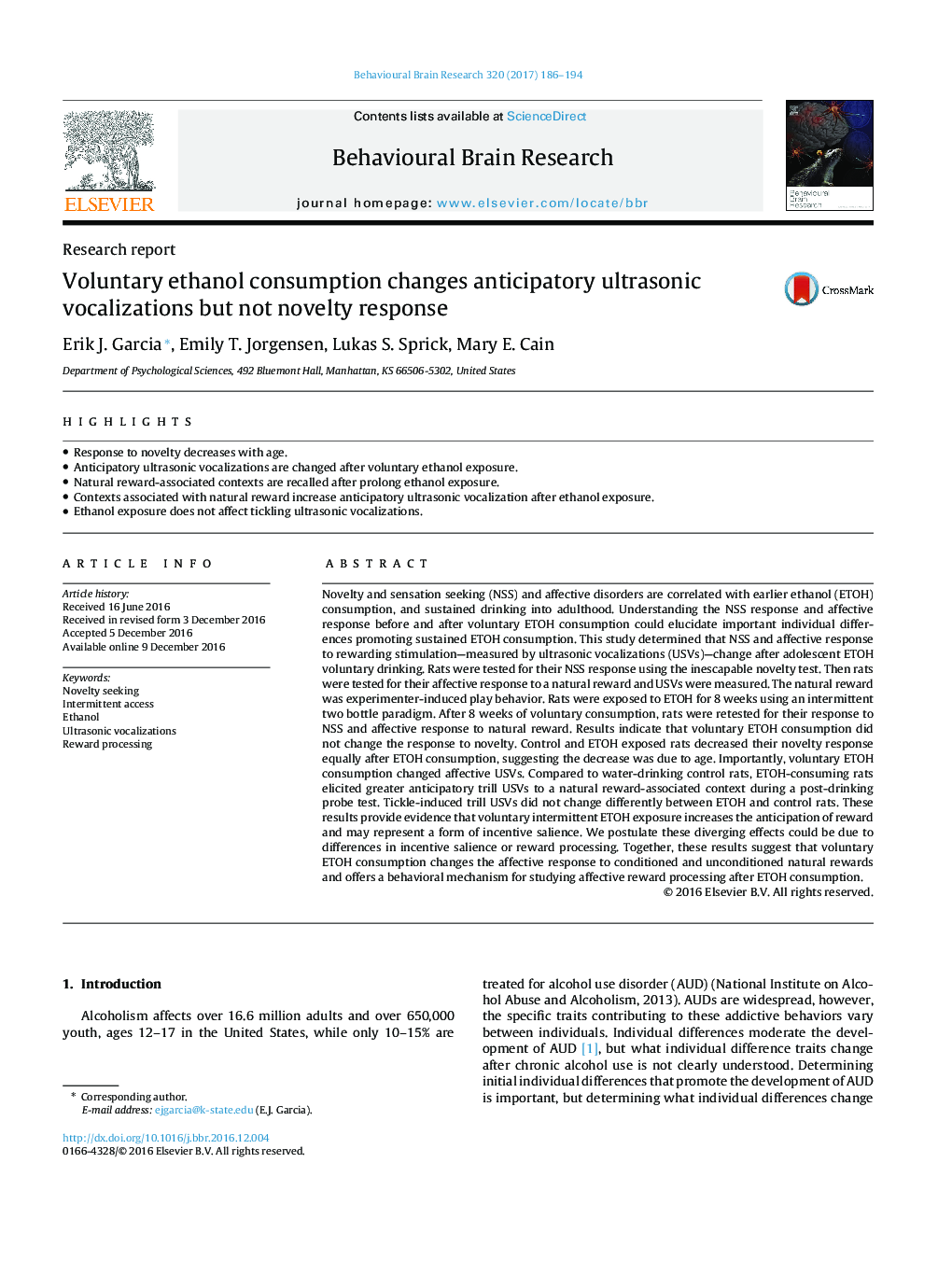| کد مقاله | کد نشریه | سال انتشار | مقاله انگلیسی | نسخه تمام متن |
|---|---|---|---|---|
| 5735661 | 1612913 | 2017 | 9 صفحه PDF | دانلود رایگان |
عنوان انگلیسی مقاله ISI
Voluntary ethanol consumption changes anticipatory ultrasonic vocalizations but not novelty response
ترجمه فارسی عنوان
مصرف اتانول داوطلبانه تغییرات فراخوان اولتراسونیک پیشگویی را تغییر می دهد، اما پاسخ جدیدی نیست
دانلود مقاله + سفارش ترجمه
دانلود مقاله ISI انگلیسی
رایگان برای ایرانیان
کلمات کلیدی
موضوعات مرتبط
علوم زیستی و بیوفناوری
علم عصب شناسی
علوم اعصاب رفتاری
چکیده انگلیسی
Novelty and sensation seeking (NSS) and affective disorders are correlated with earlier ethanol (ETOH) consumption, and sustained drinking into adulthood. Understanding the NSS response and affective response before and after voluntary ETOH consumption could elucidate important individual differences promoting sustained ETOH consumption. This study determined that NSS and affective response to rewarding stimulation-measured by ultrasonic vocalizations (USVs)-change after adolescent ETOH voluntary drinking. Rats were tested for their NSS response using the inescapable novelty test. Then rats were tested for their affective response to a natural reward and USVs were measured. The natural reward was experimenter-induced play behavior. Rats were exposed to ETOH for 8 weeks using an intermittent two bottle paradigm. After 8 weeks of voluntary consumption, rats were retested for their response to NSS and affective response to natural reward. Results indicate that voluntary ETOH consumption did not change the response to novelty. Control and ETOH exposed rats decreased their novelty response equally after ETOH consumption, suggesting the decrease was due to age. Importantly, voluntary ETOH consumption changed affective USVs. Compared to water-drinking control rats, ETOH-consuming rats elicited greater anticipatory trill USVs to a natural reward-associated context during a post-drinking probe test. Tickle-induced trill USVs did not change differently between ETOH and control rats. These results provide evidence that voluntary intermittent ETOH exposure increases the anticipation of reward and may represent a form of incentive salience. We postulate these diverging effects could be due to differences in incentive salience or reward processing. Together, these results suggest that voluntary ETOH consumption changes the affective response to conditioned and unconditioned natural rewards and offers a behavioral mechanism for studying affective reward processing after ETOH consumption.
ناشر
Database: Elsevier - ScienceDirect (ساینس دایرکت)
Journal: Behavioural Brain Research - Volume 320, 1 March 2017, Pages 186-194
Journal: Behavioural Brain Research - Volume 320, 1 March 2017, Pages 186-194
نویسندگان
Erik J. Garcia, Emily T. Jorgensen, Lukas S. Sprick, Mary E. Cain,
